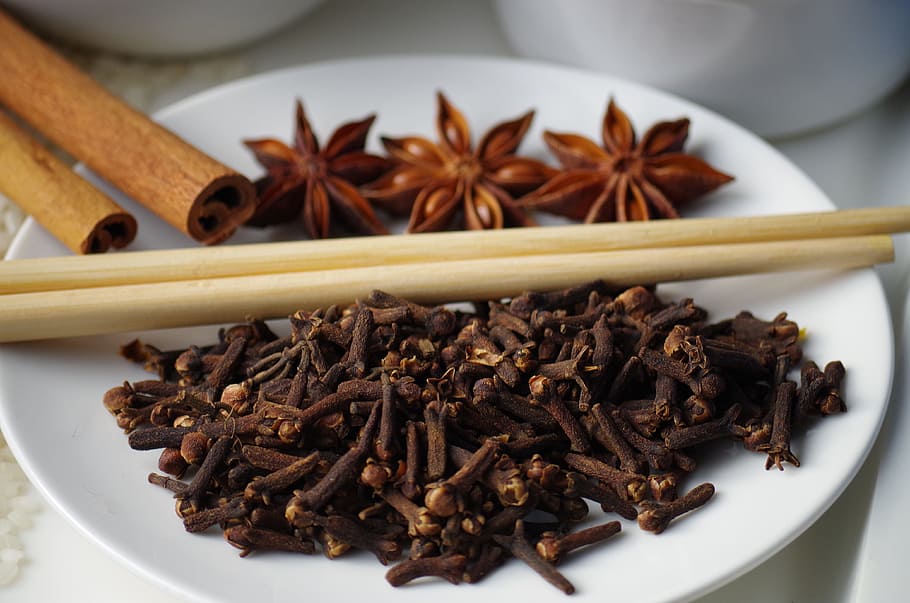
Unveiling the Potent Powers and benefits of Clove Spice
Introduction:
Clove, the aromatic spice derived from the flower buds of the Syzygium aromaticum tree, has been an integral part of culinary and medicinal traditions for centuries. Beyond its distinctive flavor and fragrance, clove possesses a plethora of health benefits that have been recognized across cultures and generations. In this comprehensive exploration, we will delve into the multifaceted advantages of clove spice, ranging from its rich nutritional profile to its potent medicinal properties.
benefits of Clove Spice
Historical Significance and Culinary Use:
A. Origins and Cultural Significance:
Clove has a rich history dating back to ancient times. Originating from the Molucca Islands in Indonesia, it quickly gained popularity for its aromatic and preservative qualities. Traders brought cloves to Europe and the Middle East, where it became a valuable commodity, contributing to the spice trade.
B. Culinary Applications:
Clove is a versatile spice that adds depth and warmth to both sweet and savory dishes. From spiced desserts and beverages to savory stews and pickles, clove has found a place in kitchens worldwide. Its distinctive flavor profile, characterized by a combination of sweetness and warmth, makes it a staple in various cuisines.
Nutritional Profile of Clove:
A. Rich in Antioxidants:
Clove is a powerhouse of antioxidants, including flavonoids, phenolic compounds, and essential oils. These antioxidants play a crucial role in neutralizing free radicals in the body, protecting cells from oxidative stress, and reducing the risk of chronic diseases.
B. Essential Nutrients:
Clove is a rich source of essential nutrients, including vitamins and minerals. It contains notable amounts of vitamin K, vitamin C, manganese, and small amounts of other vitamins and minerals, contributing to overall health and well-being.
Medicinal Properties of Clove:
A. Anti-Inflammatory Benefits:
Clove exhibits potent anti-inflammatory properties attributed to compounds like eugenol. These properties make clove a natural remedy for various inflammatory conditions, providing relief from arthritis, respiratory issues, and other inflammatory disorders.
B. Analgesic and Pain-Relieving Effects:
Eugenol, a primary component of clove oil, possesses analgesic properties that make it effective in alleviating pain. Clove oil has been used topically or in oral applications to manage dental pain, headaches, and muscle soreness.
C. Antibacterial and Antifungal Action:
Clove has long been recognized for its antimicrobial properties. The essential oil derived from cloves exhibits strong antibacterial and antifungal effects, making it a valuable component in oral hygiene products and natural remedies for infections.
D. Dental Health:
Clove has a historical association with dental care due to its analgesic and antibacterial properties. It is commonly used in dental products like toothpaste and mouthwash to combat bad breath, prevent cavities, and relieve toothache.
E. Digestive Aid:
Clove stimulates the production of digestive enzymes, promoting healthy digestion. It is often used to alleviate indigestion, bloating, and gas. Clove tea or incorporating cloves into meals can support digestive well-being.
F. Respiratory Health:
Clove’s antimicrobial and anti-inflammatory properties extend to respiratory health. It is frequently used to relieve respiratory issues such as coughs, asthma, and bronchitis. Inhaling steam infused with clove oil can provide respiratory relief and help clear congestion.
Cardiovascular Health:
A. Blood Circulation and Clot Prevention:
Clove has been associated with improved blood circulation and the prevention of blood clot formation. The antioxidants in clove may contribute to maintaining cardiovascular health by reducing the risk of heart-related issues.
B. Blood Sugar Regulation:
Research suggests that clove may play a role in regulating blood sugar levels. Compounds found in cloves may enhance insulin sensitivity, making it a potentially beneficial spice for individuals managing diabetes or at risk of developing the condition.
Potential Cancer-Fighting Properties:
A. Anticancer Effects:
Studies have explored the potential anticancer properties of clove due to its rich antioxidant content. Some research suggests that clove extracts may have inhibitory effects on the growth of certain cancer cells, paving the way for further investigations into its role in cancer prevention.
Weight Management:
A. Metabolism Boost:
Clove has been linked to an increase in metabolic rate, potentially aiding in weight management. While not a standalone solution, incorporating clove into a balanced diet may contribute to a healthy metabolism and weight maintenance.
Incorporating Clove into Your Diet:
A. Culinary Suggestions:
Integrating clove into your diet is easy and adds depth to various dishes. From spiced desserts like apple pie to savory stews and curries, the versatility of clove makes it a valuable addition to your spice cabinet.
B. Clove Tea:
Clove tea is a simple and enjoyable way to harness the health benefits of clove. Steeping a few whole cloves or using ground clove in hot water can create a fragrant and soothing beverage. Add a dash of honey or lemon for extra flavor.
C. Clove-Infused Oils:
Clove-infused oils can be used in cooking or applied topically for various benefits. Making your own clove-infused oil at home is a straightforward process, requiring only a carrier oil and whole cloves.
Precautions and Considerations:
A. Moderation is Key:
While clove offers numerous health benefits, it’s essential to use it in moderation. The high concentration of certain compounds, particularly in essential oil form, can lead to adverse effects if consumed excessively.
B. Allergic Reactions:
Individuals with allergies to certain spices, including clove, should exercise caution and consult with a healthcare professional before incorporating it into their diet or using it for medicinal purposes.
C. Interaction with Medications:
Clove may interact with certain medications, including blood thinners and anticoagulants. If you are taking medication, especially for cardiovascular or blood-related conditions, it’s advisable to consult with a healthcare provider before incorporating clove into your routine.
Conclusion:
Clove spice, with its captivating aroma and rich flavor, transcends its culinary role to offer an array of health benefits. From its antioxidant-rich profile to its anti-inflammatory, analgesic, and potential anticancer properties, clove stands out as a remarkable spice with a diverse range of applications. As we continue to unveil the intricate tapestry of clove’s advantages, it becomes clear that this spice is not only a culinary delight but also a valuable ally in promoting overall health and well-being. As with any natural remedy, moderation and informed use are key to reaping the maximum benefits that clove has to offer.
See more harmful article with narrate news


